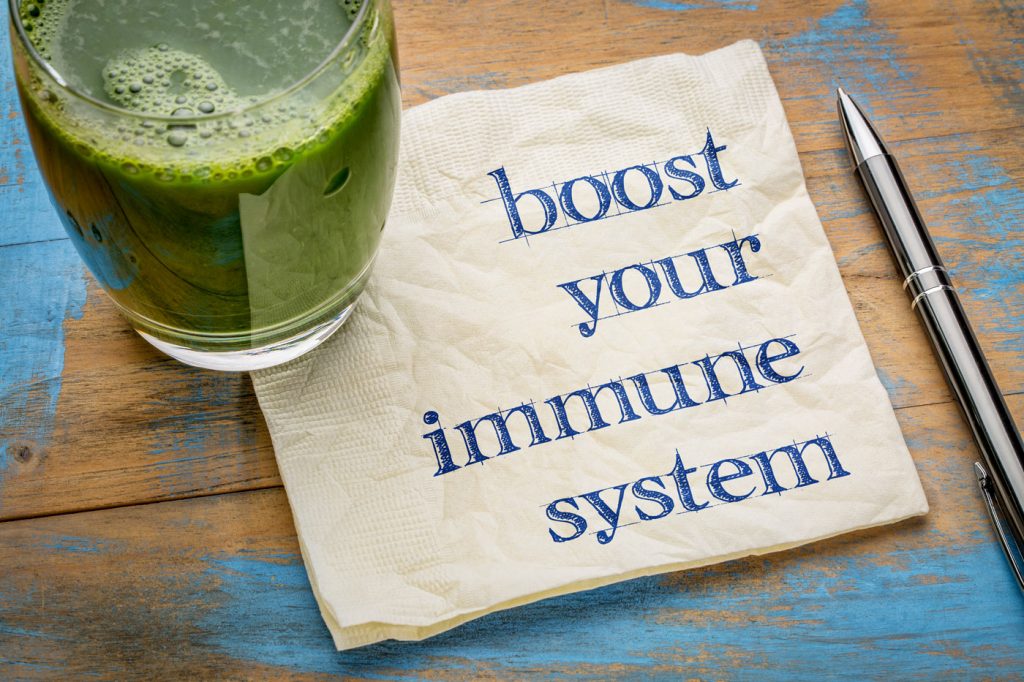Daily habits to strengthen your immune system
The idea of boosting your immune system is enticing, but the ability to do so has proved elusive for several reasons.

The idea of boosting your immune system is enticing, but the ability to do so has proved elusive for several reasons.

On the whole, your immune system does a remarkable job of defending you against disease-causing microorganisms. But sometimes our immune system fails: a germ invades successfully and makes you sick. Is it possible to intervene in this process and boost your immune system? What if you improve your diet? Take certain vitamins or herbal preparations? Make other lifestyle changes in the hope of producing a near-perfect immune system response?
A perfect storm of airborne contagions is just about to pounce on our immune system. For the first time in modern history, the Northern Hemisphere may experience a double whammy of serious illnesses as the seasonal influenza epidemic descends upon a country still in the throes of a pandemic.
There are many simple things you can do to mount a formidable defense against both COVID-19 and the 2022 respiratory virus season, and we’re already doing some of them, such as wearing masks and social distancing. But there are also a few additional healthy habits that can help you double down on bolstering your immune system.

Your first line of defense is to choose a healthy lifestyle. Following general good-health guidelines is the single best step you can take toward naturally keeping your immune system working properly. Every part of your body, including your immune system, functions better when protected from environmental assaults and bolstered by healthy-living strategies such as these:
Some scientists theorize that one reason we get more colds in the winter is that we get less exposure to the sun, and subsequently less vitamin D. The so-called “sunshine vitamin,” vitamin D is produced from the sun’s ultraviolet-B (UVB) rays. While you can get vitamin D from food, experts still recommend the best way to increase levels of the vitamin are by getting some rays or taking a supplement if you have a deficiency.
The food you eat plays a key aspect in determining your overall health and immunity. Eat low carbohydrate diets, as this will help control high blood sugar and pressure. Focus on a protein-rich diet to keep you fit. Consume vegetables and fruits rich in beta carotene, ascorbic acid and other essential vitamins.
Certain foods like mushrooms, papaya, tomato, bell pepper and green vegetables like broccoli, spinach are also good options. Ginger, gooseberries and turmeric are some natural immune system boosters. Some of these superfoods are common ingredients in Indian cuisine. There are several herbs that help in boosting immunity like garlic, basil leaves and black cumin.
Certain seeds and nuts like sunflower seeds, Flax seed, pumpkin seeds and melon seeds are excellent sources of protein and vitamin E. Probiotics like yoghurt and fermented food are also excellent sources to rejuvenate the composition of gut bacteria, which is important for nutrient absorption by the body. These are good options for the older generation too.
Drink water and broth, and tea, and anything without a lot of sugar. Being hydrated is important for immune health because water helps flush everything out. It’s critical for members of the aging population who tend to consume less liquid over the course of a day.
Remember back when you pulled three all-nighters in a row studying for final exams? You caught a cold and it’s probably no coincidence. Studies show that lack of sleep may significantly lower immune system strength. Sleep researchers at several universities tested this theory by exposing 164 volunteers to the cold virus through nasal drops while monitoring their sleep and evaluating their health habits. It turned out that participants who slept less than five hours were four-and-a-half times more likely to catch a cold than those who regularly slept seven hours a night. Not getting sleep fundamentally affects your physical health, and short sleep was more important than any other factor in predicting subjects’ likelihood of catching a cold.
As long as you aren’t exerting your body so much that you become extremely exhausted, getting aerobic exercise regularly is good for your heart, lungs, brain, and immune system. In general, a healthier body is better prepared to fend off disease and infection, particularly upper respiratory infections like colds and the flu.
Stress triggers inflammation in the body, and inflammation weakens the immune system. But how can anyone get through a day without feeling a little stress? Especially in uncertain times? It is definitely a challenge – for everyone – but there are steps you can take to reduce your stress.Steps like keeping a positive attitude, realizing there are things that are simply out of your control, and adopting relaxation techniques like meditation and yoga. There are even steps to a healthy immune system that will also aid in stress reduction, like exercising regularly and eating healthy.
